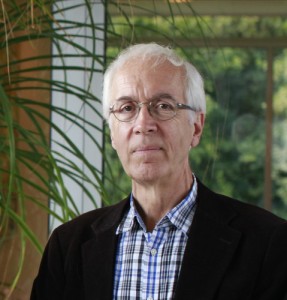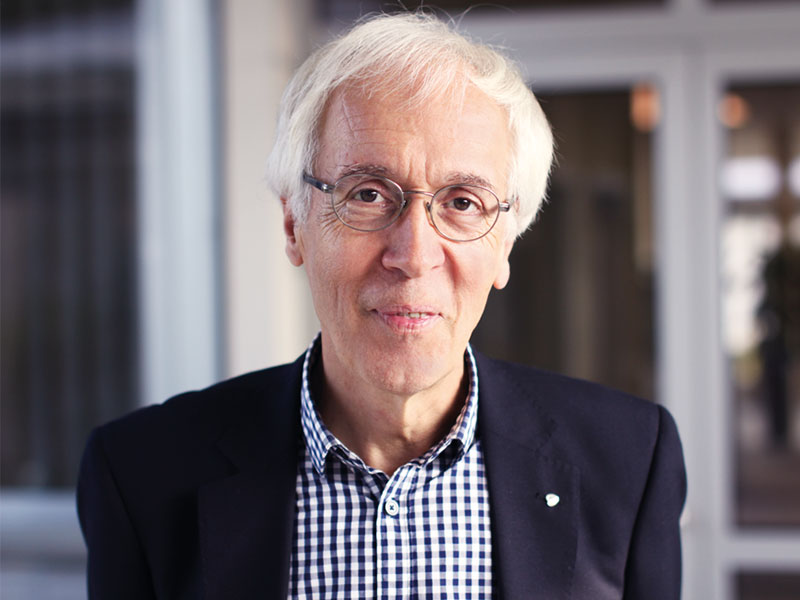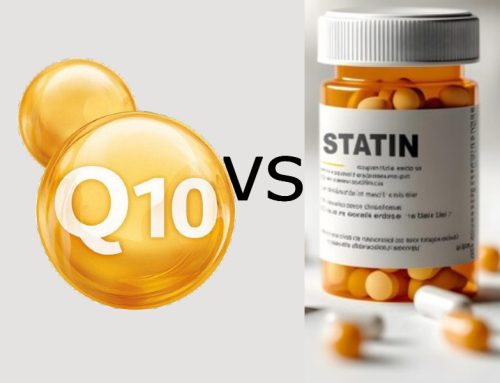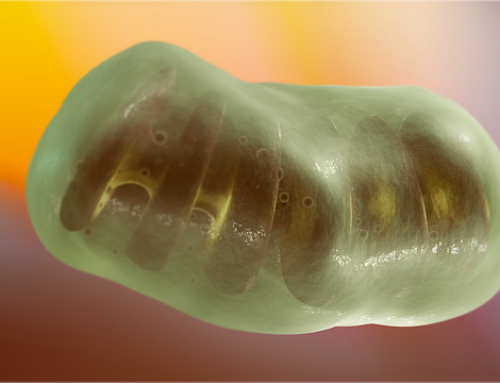
Dr. Svend Aage Mortensen, lead researcher and lead author of the Q-Symbio Study
Dr. Svend Aage Mortensen was the lead researcher and the lead author on the Q-Symbio study of the efficacy of Coenzyme Q10 supplementation in chronic heart failure patients.
Dr. Mortensen was a cardiologist and surgeon in the Department of Cardiology in the Heart Centre at the Copenhagen University Hospital (Rigshospitalet) in Denmark.
Dr. Mortensen would have been 73 years old this year (August 31, 2015). Tragically and unfortunately, he has died on April 22, 2015, as the result of infection and complications following heart valve replacement surgery.
Dr. Mortensen’s career
Dr. Mortensen completed his medical education and became a doctor in 1974. He was, from the start of his career, involved in the care and treatment of heart patients.
He first distinguished himself by introducing acute pacemaker surgery in Helsingør in Denmark. In 1978, then, he moved to the Cardiology Clinic at Rigshospitalet (Denmark’s leading hospital for patients needing highly specialized treatment) in Copenhagen, and he remained there for the rest of his career.
In London, Dr. Mortensen learned a new technique for taking tissue samples (biopsies) from the heart muscle, and he brought the new technique to Denmark where it had not previously been known. The technique is needed to check the progress of heart transplant patients.
At Stanford University in 1983, Dr. Mortensen trained in the specialty of heart transplantation. From 1990 forward until his death, he was the medical director of the heart transplantation program at Rigshospitalet.
In 1985, together with Dr. Karl Folkers, he published a study containing a biochemical rationale and myocardial tissue data in support of the use of Coenzyme Q10 in the treatment of heart disease (1).
In 1999, he was named a fellow of the European Society of Cardiology.
In 2003, he published his overview article on the use of Coenzyme Q10 as an adjunctive therapy in chronic heart failure. In so doing, he was building the rationale, design and end-points of the Q-Symbio multinational clinical trial. Indeed, he thought that energy starvation was the dominant feature of heart failure and required an agent (Coenzyme Q10) that would help to stabilize and maintain energy stores in the heart muscle (2).
Dr. Mortensen and Q10 research
Dr. Mortensen’s special research interest was in the efficacy of adjunctive treatment of chronic heart failure patients with Q10 supplements. He was one of the first cardiologists, if not the first cardiologist, to see the connection between heart failure symptoms and the energy starvation – or energy deprivation – of the heart muscle cells (3).
The thing that Dr. Mortensen liked most about the use of Q10 supplements as an adjunctive treatment of heart failure patients was that Q10 supplementation was and is a helping strategy. It was and is a treatment that does not block some biochemical or physiological function in the heart but, instead, Q10 supplementation enhances the heart muscle cells’ efforts to produce energy. Q10 works with the heart in a natural way.
In prescribing Q10 as an adjunctive treatment for heart failure patients, Dr. Mortensen was treating a deficiency condition – reduced levels of Coenzyme Q10 in the heart muscle cells of heart failure patients – a condition that had been established in earlier research studies. In fact, there is a known inverse correlation between the level of Q10 in the heart muscle tissue and the severity of heart failure.
Q10 as an indirect inotrope
As a cardiologist, Dr. Mortensen thought that what was most needed for the treatment of heart failure patients was/is a good safe positive inotrope. An inotrope is a medication that affects the force and energy of muscular contractions. A positive inotrope strengthens the contractions of the heart muscle; a negative inotrope weakens the contractions.
The only positive inotrope available to Dr. Mortensen and his fellow cardiologists was/is digoxin, which has a limited margin of safety. Coenzyme Q10, on the other hand, is safe and well-tolerated, and Dr. Mortensen regarded it as an indirect positive inotrope. His reasoning was that Q10 restores the process of energy production in the mitochondria of the heart muscle cells and improves heart muscle function and performance in patients diagnosed with heart failure.
Q10 supplementation for patients taking statin medications
Similarly, Dr. Mortensen knew that statin medications inhibit not only the body’s production of cholesterol but also the body’s synthesis of Coenzyme Q10, leading to the decreased levels of Q10 in heart muscle tissue (6). He was very clear that patients taking a statin medication need to be taking a Q10 supplement as well.
The effect of the Q-Symbio study results
It was Dr. Mortensen’s hope that the positive results of the Q-Symbio study, an international multi-center study enrolling 420 participants, would be sufficient to cause a change in the US and European guidelines for the treatment of heart failure patients (4). He envisioned a change in the guidelines to include adjunctive Q10 therapy because, as he pointed out, Q10 treatment has been shown to be safe, to improve symptoms, and to reduce major adverse cardiovascular events (5).
It is also an affordable therapy. Dr. Mortensen estimated, in 2014, that 300 mg per day of Coenzyme Q10 from a reputable supplier would cost about $50 per month.
The legacy of Dr. Svend Aage Mortensen
Dr. Mortensen’s legacy to us is, rightly, the Q-Symbio study, which shows that Q10 supplementation of chronic heart failure patients can bring about statistically significant positive outcomes:
- Fewer major adverse cardiovascular events
- Fewer hospitalizations
- Fewer cardiovascular deaths
- Fewer all-cause deaths
Read our key article on CoQ10 as adjuvant therapy for heart failure
Sources:
- Folkers, K., Vadhanavikit, S., Mortensen, S. A. (1985). Biochemical rationale and myocardial tissue data on the effective therapy of cardiomyopathy with coenzyme Q10. Proc Natl Acad Sci U S A.; 82(3):901-4.
- Mortensen, S. A. (2003). Overview on coenzyme Q10 as adjunctive therapy in chronic heart failure. Rationale, design and end-points of “Q-symbio”–a multinational trial. Biofactors (Oxford, England), 18(1-4), 79-89.
- Mortensen, S. A., & Mortensen, A. L. (2014). The mitochondria in heart failure: a target for coenzyme Q10 therapy?. Clinical Pharmacology And Therapeutics, 96(6), 645-647.
- Mortensen, S. A., Rosenfeldt, F., Kumar, A., Dolliner, P., Filipiak, K. J., Pella, D., & … Littarru, G. P. (2014). The effect of coenzyme Q10 on morbidity and mortality in chronic heart failure: results from Q-SYMBIO: a randomized double-blind trial. JACC. Heart Failure, 2(6), 641-649.
- Mortensen, S. A. (2015). Coenzyme Q10: Will this natural substance become a guideline-directed adjunctive therapy in heart failure? JACC. Heart Failure, 3(3), 270-271.
- Mortensen, S. A. (2011). Low coenzyme Q10 levels and the outcome of statin treatment in heart failure. JACC;57(4), 1569.









Leave A Comment